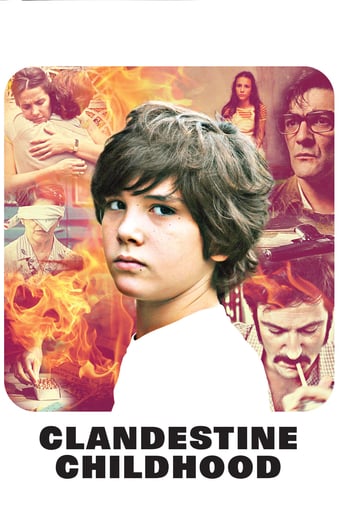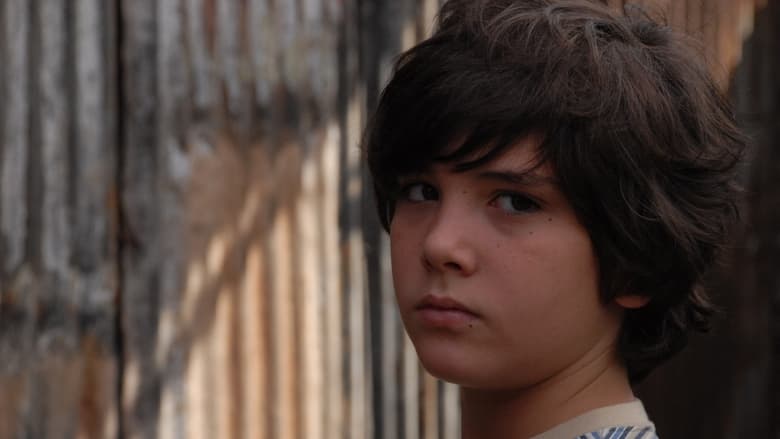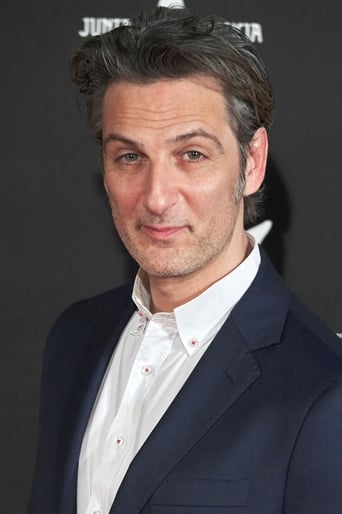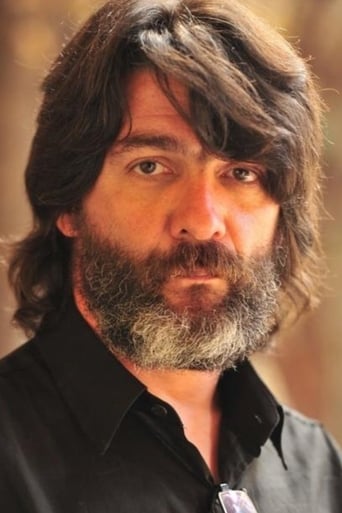Clandestine Childhood (2012)
Juan lives in clandestinity. Just like his mum, his dad and his adored uncle Beto, outside his home he has another name. At school, Juan is known as Ernesto. And he meets María, who only has one name. Based on true events, set in the Argentina of 1979, this film is one about love.
Watch Trailer
Cast
Reviews
Very disappointing...
Good story, Not enough for a whole film
Through painfully honest and emotional moments, the movie becomes irresistibly relatable
One of the worst ways to make a cult movie is to set out to make a cult movie.
Director Benjamín Ávila's acknowledgment and thanks at the end came as such a surprise because the film he just made showed the opposite of said intentions. The film, set in 1979 Argentina, is about a boy who's forced to use a different identity for his and his parents and Uncle's safety. These parents and his uncle are part of the resistance, whose one of the chants are "Perón or death", and really mean said words. The film is relentless, definitely in a bad way, and manages to be unnecessarily long, bogged down with story lines about first love and "girls are like chocolates" metaphors. A better movie would have committed to the child's POV, using cinematography to always see things from his point of view. But that was not the case here. The film tries to center other characters that in the end it doesn't quite serve any of them well enough. And back to my first sentence, instead of the film being a successful homage to the people of resistance back in that era, I found myself thinking they were really bad parents, too blind to the cause to make decisions that wouldn't endanger their children.
This was the Argentina's submission for last year's American Academy Awards and failed to make into the final five. But it was a clean sweep in Argentinian Academy Awards in the same year. Forget that past sad occurrence, I mean the Oscars, this movie was great and I liked it very much. After a very long gap I saw an Argentinian movie reckoning to be a good and it was. I am satisfied and glad I saw it which was loosely based on the director's real life story when he was a child.This story was told from the perspective of a kid called Juan. His parents are the activists during the Cold War known as the Dirty War. After their return to the home country with different names, Juan joins the school known as Ernesto. He finds hard to understand his parents' behaviour, but comfortably settles with his new fake name with a little help from his uncle. The problem arises when his true identity matters the most. Whether he reveals or not is the crux of the movie's end.In my recent watch I had seen the people who struggle while protesting in a country's revolution. It might be based on real like 'NO' or fictional like 'Night Train to Lisbon', but majority of them end in heartbreak tragedy. Similarly, this movie opened its account in a simple manner like most of the drama that based on the revolution theme. Yes, of course it confuses at first about what's going on then slowly explain the situation. But all the difference and racy pace emerge suddenly in the last quarter of the movie. Till then I was in the movie trying to concentrate, but then instantly put me on the edge of my seat with cute romance and followed by thriller. That, the end portion of the story of last 10-15 minutes took the movie to the heights.Yes, like I said the movie kicks off with a slow and boring pace with nothing much to enjoy earlier and ends in a style. Some movies are largely depends on the story's end solution and so this. To me it looked fine movie, different people will have different opinions, so watch it by yourself and express yours.
For so many of us the governmental complexities that seem to occur with regularity in South America never seem to be clear. CLANDESTINE CHILDHOOD ('Infancia clandestine') offers the opportunity to not only be informed about the machinations of such movements, but also allows us entry into the personal view of the changes that political events impact so powerfully on the citizens.Benjamín Ávila who wrote (with Marcelo Müller) and directed this brilliant little film is sharing his experiences of living through the times that his story relates. The year is 1979 and an Argentinean family who have been exiled in Cuba return to Argentina as Montoneros - a guerrilla group fighting against the military junta that controlled Argentina from 1976 to 1983. In a coup on March 24, 1976, a military junta seized power in Argentina and went on a campaign to wipe out left-wing terrorism with terror far worse than the one they were combating. Between 1976 and 1983 - under military rule - thousands of people, most of them dissidents and innocent civilians unconnected with terrorism, were arrested and then - los desaparecidos. The father Horacio (César Troncoso) and mother Cristina (the incredibly beautiful Uruguayan actress Natalia Oreiro), baby girl Vicki, and 12 year old son Juan are forced to change their names and hide from the authorities so that the guerrilla warfare can be accomplished. There is one other member of the family - Uncle Beto (Ernesto Alterio) - who seems to be the most solid tie between Juan (now called 'Ernesto') and his family's condition.'Ernesto' enters school, discovers Maria (Violeta Palukas) and from there the story becomes more one of a blossoming love than a country under military control. But the fear and eventual capture of Ernesto's family brings an end to a precious little love story: Ernesto must leave with the remaining members of his family and go to live with his grandmother Amalia (Cristina Banegas). Juan/Ernesto's childhood has become a clandestine one.The film is well acted and directed but most important it offers us a view of the conditions of living in Argentina during that dark cloud of Los Desaparecidos. It is a powerful yet very tender document about the effect of war on us all - but especially on children.Grady Harp
The movie is an emotional journey that takes its spectators to Argentina's military dictatorship of 1970's. Juan is a boy who struggles with his double identity he obtained for security purposes, as his parents are involved in combat against the regime. Ávila's script collaboration with Müller brings an amazing story that balances between fear of being discovered by military and love in the family, and consequently love of Juan and his classmate María. Altogether with the script, the movie has absolutely engaging music, art direction and cinematography. Ávila's way of filming brings attention to every single detail and delivers unified piece of cinematographic art. Actor Teo Gutiérrez Moreno is absolutely superb in his performance of the young boy and his life's struggle. Actress Natalia Oreiro delivers thrilling performance of revolutionary fighter and proves that she can portray a character that is as gentle as a mother to her son, as well as someone determined to fight the military regime. Moreover, actor Ernesto Alterio brings moments of humor into the story as his well-written character of uncle Beto. The story is based on true events and the love the director dedicated to this movie can be felt in every single second. This outstanding movie will touch not only those familiar with Argentine regime of 70's, yet it will find its way to hearts of many cinema lovers too.





